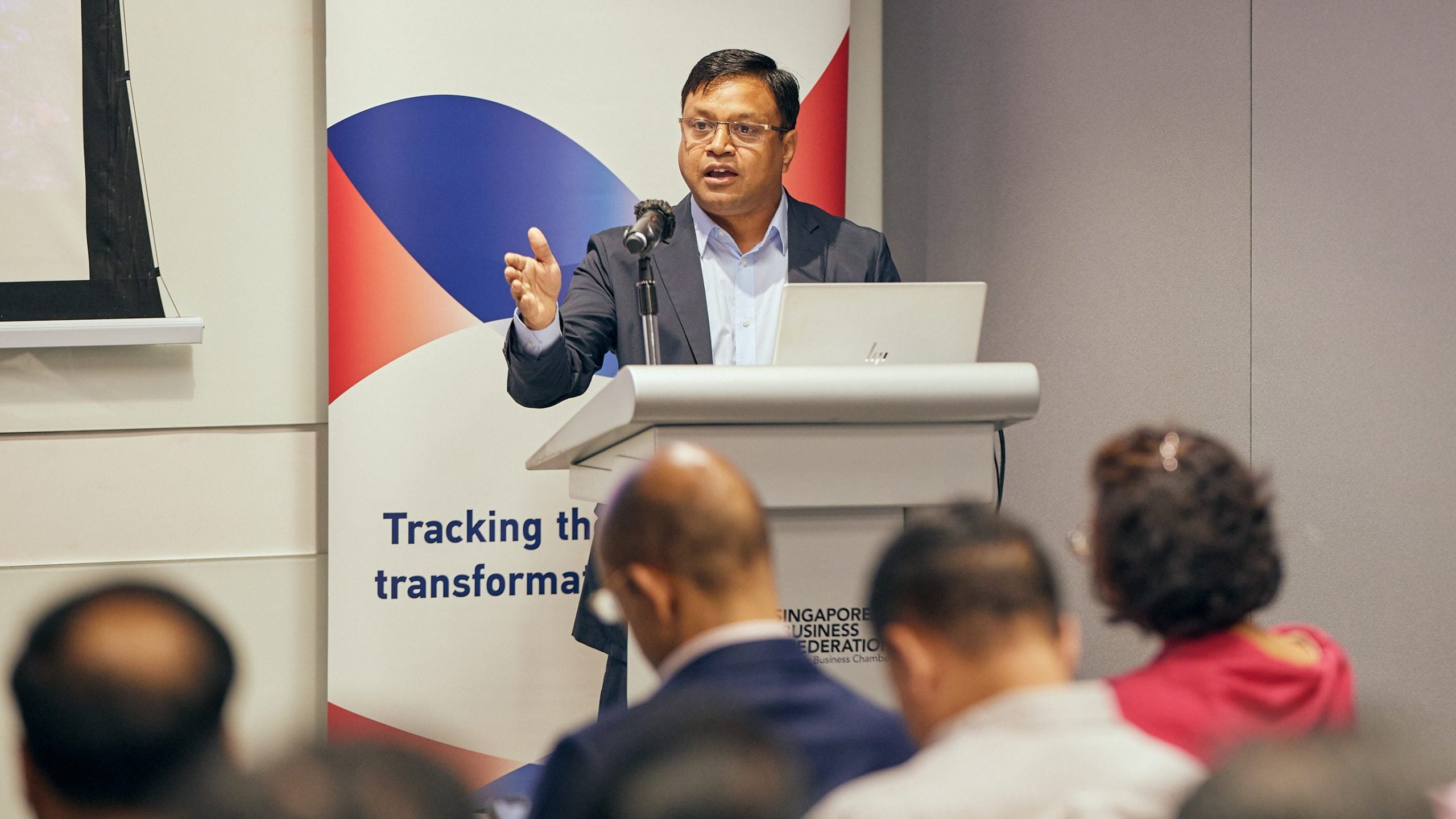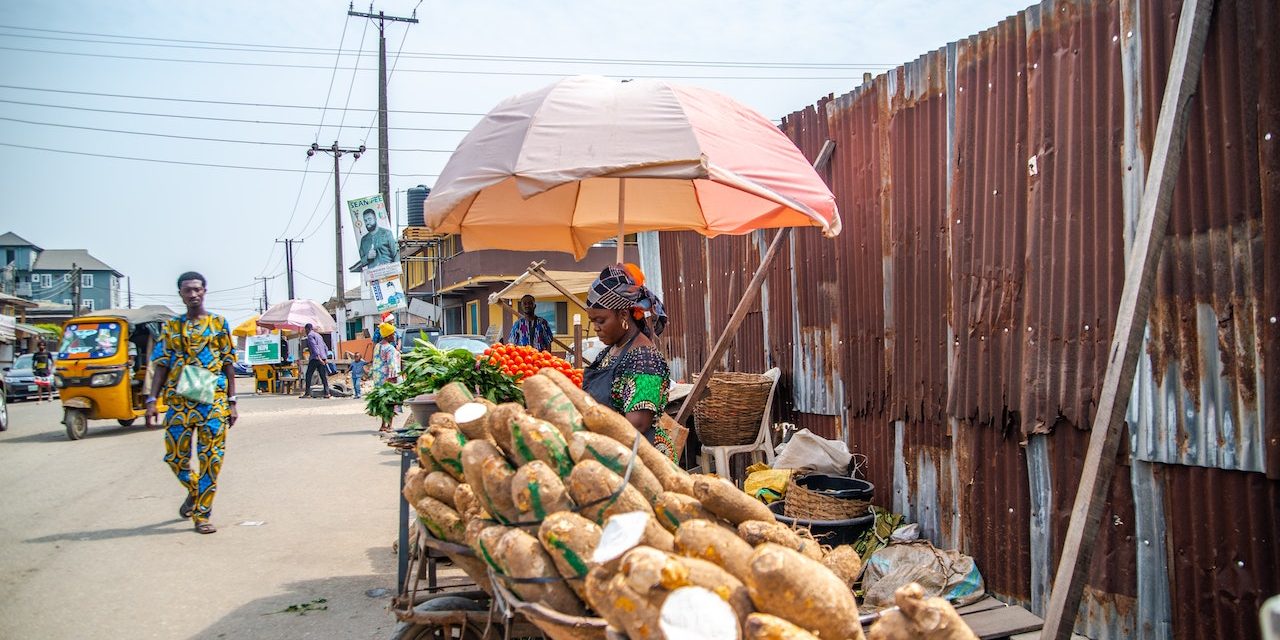The NTU-SBF Centre for African Studies has unveiled a 10-year roadmap to put Nigeria back on the path of sustained growth.
Back to Growth: Priority Agenda for the Economic Revival of Nigeria, a 150-page report authored by Amit Jain, the director of NTU-SBF Centre for African Studies, was presented at the Singapore Business Federation Centre last Friday.
The event was organised jointly by NTU-SBF Centre for African Studies, which is a think tank, and business chamber SBF.
The NTU-SBF Centre for African Studies researches the economic landscape of the African continent and is part of the Nanyang Business School.
The SBF a business chamber which furthers the interests of the Singapore business community in the areas of trade, investment and industrial relations. It represents more than 29,000 companies, as well as key local and foreign business chambers.
The seminar was attended by Ranveer Chauhan, chair of SBF’s Africa Business Group, and Godswill Unegbu, counsellor and head of chancery of the Nigeria High Commission in Singapore. Around 50 business and academic leaders from both Singapore and the continent of Africa also joined the seminar.
The following is a piece written by Jain on what it will take for Nigeria to revive its economy and future.

Nigeria’s perfect storm
The NTU-SBF Centre for African Studies report comes at a time when a new administration is in office in Abuja. Nigeria faces a perfect storm of slowing growth, shrinking revenues, rising expenses, and a breakdown of security.
The manufacturing sector is under pressure, business confidence is low, and the kinds of jobs that are being created are not enough to provide meaningful employment to the millions entering the workforce every day.
The administration of President Bola Tinubu, who assumed office in May this year, is confronted with an economy that is in urgent need of revival. It has taken some steps in the right direction, but more remains to be done.
It is the first time that a think tank based in Singapore has produced such a policy recommendation report for any African state.
The report has identified the most serious problems facing the Nigerian economy.
The most critical one is the country’s excessive reliance on fossil fuels. The oil and gas industry accounts for just 5% of gross domestic product but makes up more than 80% of state revenue. This is no longer sustainable.
Dependence on crude oil exports has left the country vulnerable to cycles of boom and bust. Meanwhile, inflation is chipping away at the income of the everyday Nigerian. This is driving higher rates of poverty.
Even those who had previously managed to climb out of poverty are increasingly slipping back into it.
Around 95 million Nigerians are now classified as extremely poor. The World Bank defines “extreme poverty” as living on less than USD1.90 per person per day.
It is a cruel irony that despite its wealth of resources, Nigeria remains one of the poorest countries in the world. Unemployment rates are at record highs. It has multiplied four-fold since 2015.
Four pillars for the future
The report lays out four critical factors are likely to determine the economic performance of the country over the next 10 years. The first, it says, is the price of oil in the international market.
The second is fiscal stability. That will only be achieved, says the report, if Nigeria keeps debt servicing costs within manageable limits, controls inflation, manages its balance of payment, reforms the exchange rate regime, reduces wasteful expenditure, reduces its economic vulnerability, and mobilises additional revenue.
The third factor identified is infrastructure. Nigeria will need to invest at least US$100 billion each year on roads, ports, and power if it is to sustain economic growth.
The fourth is investor confidence. Negative investor sentiment has resulted in a sharp fall in foreign direct investments.
Corruption remains a significant barrier to doing business in Nigeria and it must be addressed.
Policy priorities for the next decade
The next 10 years will be an existential test for Nigeria, according to the report. The growing population will exacerbate the challenges of food, shelter, and livelihood.
However, the country could rise to its potential, reinvigorate growth, and restore macroeconomic stability if it undertakes bold reforms.
Principally, it needs to fix its structural problems in key sectors of the economy to help it achieve 7.1% growth by 2030. These should be tackled in terms of short, medium, and long-term time frames.
Over the next two years, the top priority for Nigeria should be to achieve stability, according to the report.
That means stopping the fiscal situation from going from bad to worse. Ending the fuel subsidy would assist in this regard, as would migrating to a single exchange rate regime.
Steps have been taken in the right direction. But more needs to be done. Oil theft should be curbed, and production must be ramped up.
In the next five years, Nigeria needs to revive growth. That would require a wholesale structural transformation of the economy. The country needs to diversify away from oil and gas and strengthen other important sectors, such as agriculture, manufacturing, and services. This will require increased private investment.
Nigeria will need to establish a fair competition law, remove barriers to small enterprise growth, liberalise trade, and end the power crisis, among other things.
Nigeria’s long-term needs
In the next 10 years, Nigeria will need to ensure sustained growth. To achieve that investments would need to be made on improving human capital.
Nigeria needs to strive for good governance. It needs to progress in terms of the five core principles of good governance – transparency, accountability, participation, anti-corruption efforts, and the rule of law.
Specific matters that it will have to address include tightening fiscal oversight, reducing the size of government, improving coordination in tackling poverty, and curbing corruption.
For each of these short-, medium-and long-term policy priorities, Back to Growth: Priority Agenda for the Economic Revival of Nigeria has presented specific targets and recommendations. This includes achieving an average GDP growth rate of 7% and lifting at least 100 million people out of poverty by 2030.
Fork in the road
In conclusion, the report paints two scenarios. One, of status quo, which it predicts will result in further deterioration of the economic condition. The second scenario is where Nigeria undertakes painful but necessary reforms, which could set the country back on the path to sustained growth.
NTU-SBF Centre for African Studies plans to release an online copy of the report at a later date.
*The views expressed in this article belong to the content creators and not Diplomatic Network (Asia).
**If you enjoyed this piece, you might enjoy DNA’s interview with Dean of the African continent in Singapore.







